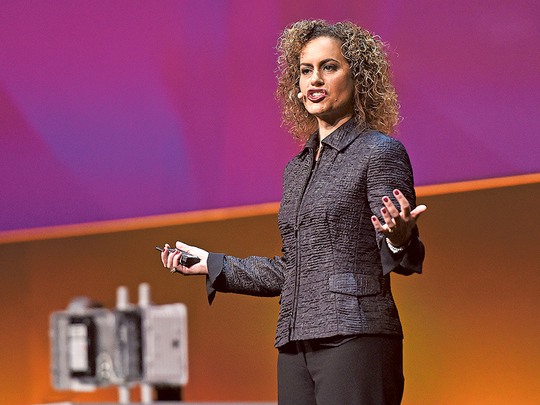
Dubai: The global revenues from the Internet of Things (IoT) will increase more than 18 per cent from $655.8 billion (Dh2.4 trillion) in 2014 to $779.9 billion this year, said a top Cisco official.
IoT is defined as the network of devices that are connected to the internet and can be controlled remotely,
“We have passed the incubation phase, now IoT/smart city solutions are ready to be scaled. Cities who scale first will be the winners in an increasingly competitive environment. Dubai is rapidly transforming into becoming one of the smartest digital cities in the world connecting the unconnected through the power of intelligent networks,” Anil Menon, president of Smart+Connected Communities at Cisco, said at the third annual Internet of Things World Forum (IoTWF) taking place in Dubai from December 6-8.
The event is showcasing more than 20 digital city and connected industry solution deployments made possible in IoT.
Menon said that in 2013, things that are still not connected to the internet stood at 99.25 per cent, but the figure fell to 99.07 per cent in 2014 and this year, it will be 98.85 per cent.
The IoT industry is growing two-fold year-on-year while the number of IoT connections in manufacturing have grown 204 per cent year-on-year.
According to research firm International Data Corporation, IoT spending in the Middle East and Africa (MEA) is projected to grow 22 per cent between 2013 and 2018, compared to the 18 per cent globally.
The IoT investment in the MEA region is expected to grow 20.7 per cent to $7 billion (Dh25.7 billion) in 2016, compared to $5.8 billion this year.
Ahmad Julfar, CEO of the etisalat Group, said that the “smart future” of the UAE is inherently built on IoT and a well-connected infrastructure.
Having invested billions of dirhams in fixed and mobile infrastructures, he said that etisalat is contributing to the enablement of IoT and smart cities in the UAE by investing further in IoT and Big Data platforms and enhancing the ecosystem for a number of solutions.
He stresses that 90 per cent of the data available with us today has been created during the last 24 months. Out of this, etisalat is effectively using only 1 per cent of the data.
Etisalat points out that by 2020, energy meters world over will be replaced by Smart Meters. Hundreds of data points per person will be transferred to preferred health care providers.
Julfar said that telcos play a vital role that cannot be replicated as connectivity is vital and critical. Within the Mena region, the cellular connections for IoT will increase by 500 per cent in the next five years.
He stressed that the IoT industry is fragmented and a standard should be set, otherwise it will not be economical. It will not become “efficient and economical” for people to use it.
Menon said that it is happening fast (standard). The governments are involved and the protocol discussions are happening within the industry. No two cities are managed the same way.
“In the next four years, I expect a standard to be available for the industry,” he said.









